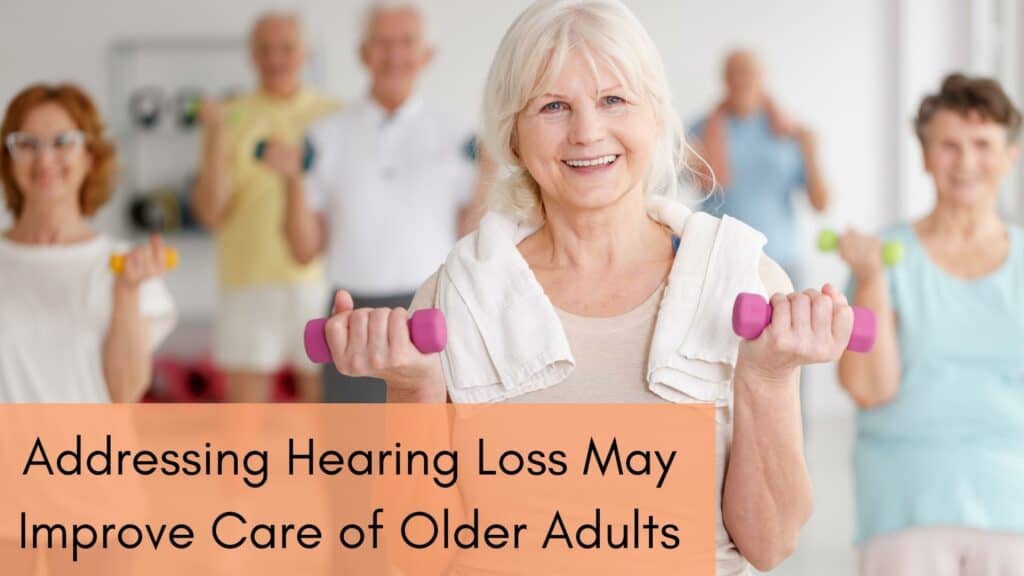Getting the best health care is a top priority for older adults. As the years go by, we are likely to have a wide range of health problems ranging from the physical to the mental and cognitive. Getting health care is essential, but care is not equally provided for all people. When you look at the statistics, many demographic differences can lead to better or worse health care. Although race, wealth, and education are some of the biggest factors, others are hidden within the data. Did you know that those who have untreated hearing loss tend to have worse health care than their counterparts who do not have hearing loss?
This fact might come as a surprise because hearing loss is not directly related to many other health conditions. When you look beneath the data, you will find that communication is a key piece of the health care process. Those who have untreated hearing loss have more difficulty communicating with their providers, and this gap can result in worse health outcomes more generally. Let’s consider a typical visit to the doctor, including all the opportunities for the process to go wrong for a person with untreated hearing loss.
Urgent Care and Emergency Room Visits
One of the most challenging settings for a person with hearing loss is a visit to an emergency room or urgent care facility. The first step in the process tends to be a triage room. After getting basic identity information, a person will be asked a series of diagnostic questions to figure out what is causing the symptoms that brought them into the facility.
These questions can sometimes include language that is difficult to decipher for anyone, and the use of medical jargon is challenging for a layperson to understand. A person with untreated hearing loss is tasked with navigating this conversation without all the necessary pieces of the puzzle. Many triage facilities are found at the entrance of the urgent care facility where others are talking, babies are crying, sirens are wailing, and music might be playing, as well. This cacophonous sonic setting can make it difficult for a person with hearing loss to understand the questions that are being asked at the triage stage.
After this consultation, a person is often taken to a hospital bed surrounded by privacy curtains. As you might expect, these curtains do little to block out the noise from other stations in the facility, including those who are being ushered into the hospital by emergency medical professionals. The answers to questions at the triage stage can funnel a person in the direction of care down the road, and the doctor will use this information to make quick diagnostic decisions. If the answers provided in triage were based on misheard questions, then the diagnostic process can be faulty throughout the duration of the visit. With background noise competing for the patient’s attention and hearing ability, it is quite possible for hearing loss to lead to a mistaken diagnosis.
Getting the Best Health Care
If someone you love has untreated hearing loss, this situation might feel all too familiar. There are steps you can take to advocate for their needs. When you first arrive at the hospital, emergency room, or urgent care facility, it is important to disclose hearing loss right away. You can ask for triage assessment and conversations with the doctor to take place in rooms with a door that closes.
For those with severe or profound hearing loss, interpreters can be provided by the facility, as well. You can serve a crucial role in the process by relaying questions closer to your loved one at a volume they can hear and with the clarity, they need to be able to respond accurately. Although these accommodations can help your older loved one get better care, the best solution is to seek treatment.
When your loved one has hearing aids in place during visits to the doctor, the communication process can flow more easily, and your loved one will be able to answer directly without worrying about miscommunicated questions. The first step is to get a hearing test, so don’t delay helping your older loved one get access to the health care they deserve.





